Introduction
For UK business owners, artists, and start-ups, intellectual property (IP) is one of the most valuable assets you can own. Properly identifying and protecting your IP not only safeguards your creative work but also strengthens your competitive edge in the market. One of the key components of this protection is Trademark Registration, which helps secure your brand identity from misuse or infringement. This article provides clear, practical guidance on how to identify different types of IP within your business and take effective steps to protect them.
What Is Intellectual Property?
Intellectual property refers to creations of the mind—such as inventions, designs, brand names, logos, artistic works, and trade secrets—that have commercial value. For start-ups and artists alike, understanding what constitutes IP is essential for building a strong foundation.
Types of Intellectual Property Relevant to Start-ups:
- Trademarks: Names, logos or slogans that distinguish your goods or services.
- Copyrights: Protection for original artistic works like music, literature or software.
- Patents: Rights granted for new inventions or processes.
- Design Rights: Protection for unique visual design elements.
- Trade Secrets: Confidential business information that gives you a competitive advantage.
Among these protections, trademark registration plays a vital role in securing brand identity.
Why Trademark Registration Matters
A registered trademark legally protects symbols that represent your business—such as logos or brand names—from being used by others without permission. This protection helps prevent confusion among customers and builds trust in your products or services.
For UK businesses especially start-ups aiming to grow quickly both domestically and internationally:
- It establishes exclusive rights over the mark across the UK.
- It enhances company valuation by adding intangible assets.
- It deters competitors from copying branding elements.
Without proper trademark registration early on could lead to costly disputes later down the line.
How To Identify Your Intellectual Property
Start by conducting an audit within your business:
- List all unique names/logos associated with products/services.
- Identify any original content such as artwork/music/software created internally.
- Note any inventions/processes developed exclusively by you/team members.
- Highlight distinctive packaging/designs used commercially.
This exercise will help clarify which parts qualify as intellectual property needing protection through trademarks or other means.
Practical Steps To Protect Your IP Through Trademark Registration
- Conduct a Trademark Search Before applying for registration with the UK Intellectual Property Office (UKIPO), search existing trademarks online using their database to ensure yours isn’t already taken or too similar.
- Choose The Right Class Trademarks are categorized into classes based on goods/services type; selecting appropriate classes ensures comprehensive coverage relevant to what you offer.
- File Your Application Submit an application online via UKIPO including details about owner info & representation along with samples/images if applicable (e.g., logo).
- Monitor & Enforce After successful registration monitor marketplace regularly against potential infringements; take legal action if necessary through cease-and-desist letters first before escalating further steps like litigation if needed.
Frequently Asked Questions (FAQs)
Q1: Can I register my trademark internationally? Yes! After registering in the UK you can extend protection globally via systems like Madrid Protocol depending on target markets abroad.
Q2: How long does trademark registration last? In the UK it lasts 10 years initially but can be renewed indefinitely every decade upon payment.
Q3: Do I need professional help when registering trademarks? While DIY applications are possible many startups benefit from consulting IP attorneys who ensure accuracy & strategic advice tailored specifically toward growth plans.
Conclusion
Protecting intellectual property is crucial for start-ups, artists,and all businesses looking toward sustainable growth —and effective trademark registration forms a cornerstone part of this strategy within the UK market landscape.By identifying key assets early then taking proactive steps such as thorough searches followed by timely filing,you safeguard not just creativity but also future-proof commercial success.If you’re serious about building a strong brand presence while avoiding costly legal pitfalls,trademark registration should be high on your priority list today!





